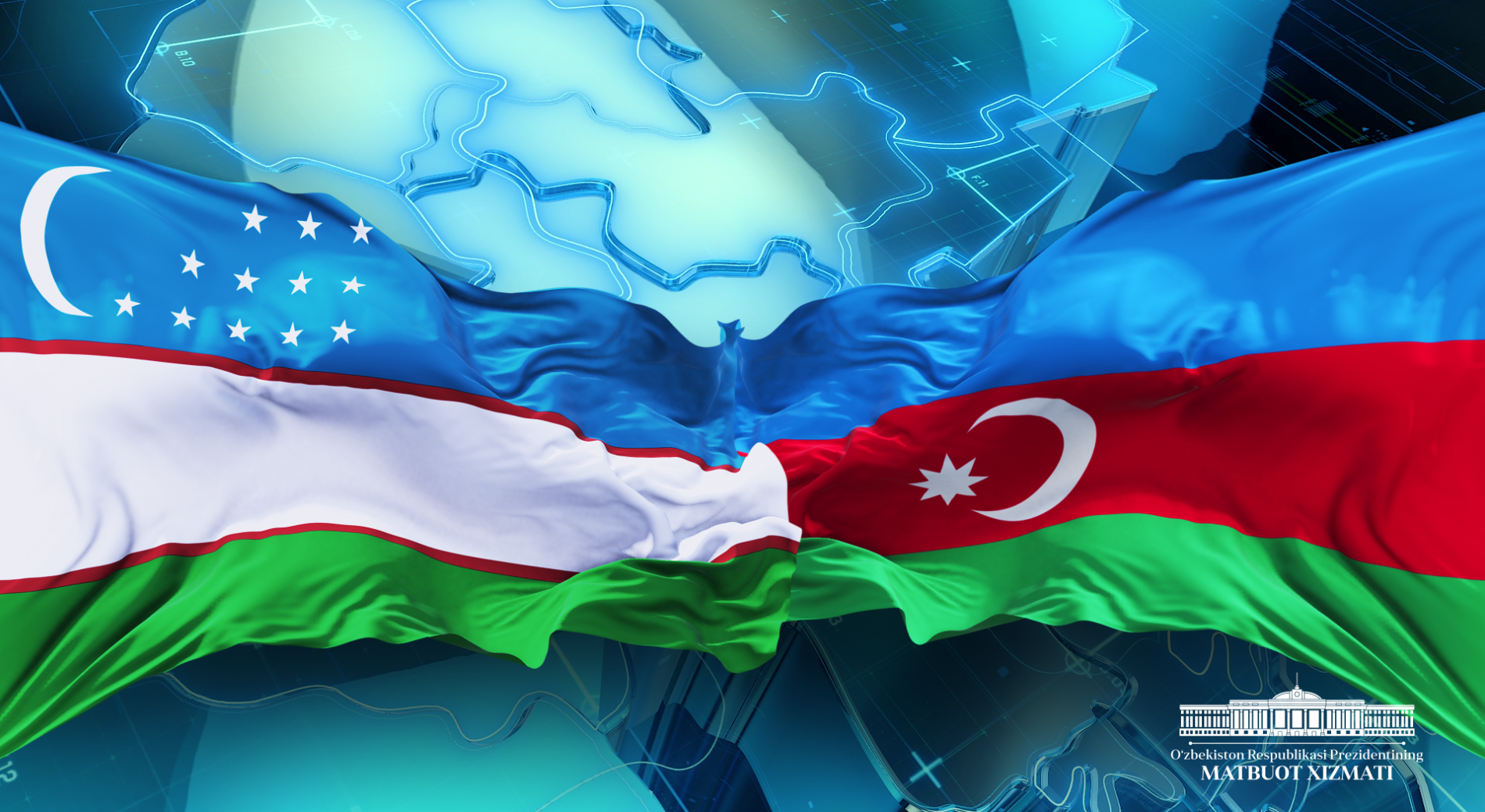BAKU, Azerbaijan, July 2. Today, President of Uzbekistan Shavkat Mirziyoyev arrives in Baku on a state visit. This visit is more than a diplomatic gesture - it marks an important milestone in the development of a multifaceted and rapidly strengthening partnership between two brotherly nations.
In recent years, ties between Azerbaijan and Uzbekistan have reached a qualitatively new level, expanding beyond traditional areas of cooperation to encompass strategically important sectors such as energy, transport, industry, agriculture, and high technology. Against the backdrop of global geopolitical transformation and the rising importance of Central Asia and the South Caucasus, Tashkent and Baku increasingly recognize the value of allied relations and the synergy of national interests.
President Mirziyoyev’s visit includes participation in the second meeting of the High-Level Intergovernmental Council and the 17th Summit of the Economic Cooperation Organization, which will be held for the first time in Khankendi. The upcoming meetings in Baku on July 2-3 will continue the high-level dialogue, with a focus on deepening strategic partnership, alliance, and economic cooperation.
Ahead of the visit, the Uzbek delegation held meetings in the Azerbaijani capital with business representatives and relevant ministries. These discussions resulted in new agreements in areas such as dairy processing, the chemical and electrical industries, and the production of construction materials and high-voltage cables. These agreements complement and expand the framework of broad-based cooperation aimed at strengthening the two countries’ economies and creating sustainable value chains across the region.
One of the clearest indicators of growing bilateral ties is the steady increase in trade. In the first five months of 2025 alone, mutual trade volumes more than tripled compared to the same period last year. Over the past five years, trade turnover has tripled, reaching $255 million. The goal set by both heads of state is to bring this figure to $1 billion in the near term.
The Azerbaijan-Uzbekistan Investment Company plays a key role in this process, with 15 promising projects across various sectors. Soon, a Baku office of the Azerbaijan-Uzbekistan Investment Fund - established with authorized capital of $500 million - will open, further boosting joint investment initiatives not only in Azerbaijan and Uzbekistan, but also in third countries in the region.
A flagship example of industrial cooperation is the production of Chevrolet cars at the Hajigabul Industrial Park. Since 2019, nearly 9,000 vehicles have been produced under a partnership with Uzavtosanoat, and construction of a second plant is already underway. Cotton sector development is progressing in parallel, with Uzbekistan’s experience forming the foundation for a domestic industry in Azerbaijan.
Overall, the number of joint ventures has increased fivefold in recent years: Uzbekistan is now home to 540 companies with Azerbaijani capital, while Azerbaijan hosts around 70 companies involving Uzbek businesses.
Energy cooperation is another critical area of engagement. In 2024, Azerbaijan, Kazakhstan, and Uzbekistan signed a strategic partnership agreement on green energy. A joint venture - Green Corridor Union LLC - has already been registered in Baku. It will lead efforts to build an energy bridge between Central Asia and Europe, enabling the transit of renewable energy via Azerbaijani infrastructure.
Activity in the traditional energy sector is also ramping up. Azerbaijan’s state oil company SOCAR and Uzbekneftegaz are preparing to begin development of the Karakalpakstan investment block - a promising project with significant oil and gas reserves, strong potential for technology transfer, and appeal to international investors.
Transport cooperation occupies a strategic place on the bilateral agenda. With its robust infrastructure, Azerbaijan is becoming a key hub for the transit of Uzbek goods to Europe. The agreement on international road transport has already delivered tangible results: in 2024 alone, transit volumes between the two countries rose by more than 18%.
Special attention is being given to the Middle Corridor, or the Trans-Caspian route, which both Baku and Tashkent view as a sustainable, politically independent alternative for exports. Joint efforts in this area include harmonizing tariff policies, modernizing logistics hubs, and digitizing cross-border operations. Both sides reaffirmed their commitment to increasing shipments across the Caspian Sea using Azerbaijani ports in the Baku agglomeration as key transshipment hubs.
Uzbekistan and Azerbaijan are showcasing a unique dynamic of cooperation across the Eurasian space. Their partnership has already transcended bilateral frameworks to form a powerful regional axis linking Central Asia and the South Caucasus. Their parallel movements toward each other - in energy, economy, transport, and green technologies - are laying a strong foundation for long-term alliance.
President Mirziyoyev’s visit to Baku is not just a continuation of dialogue, but a reaffirmation of a strategic course supported not only by national leaders, but also by business communities, energy companies, industrial players, and academic and cultural institutions. Azerbaijan and Uzbekistan are not merely exchanging goods and investments - they are jointly shaping a comprehensive architecture of cooperation. And by all accounts, this partnership is only gaining momentum.







